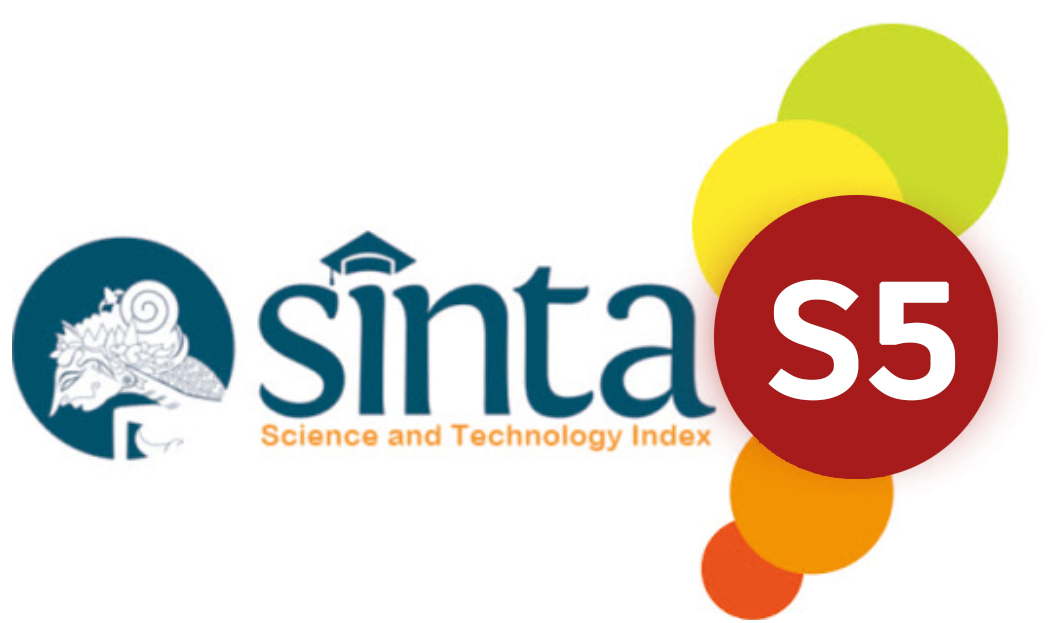Komunikasi Matematis Siswa Berdasarkan Tipe Kepribadian
Abstract
The skills that a person needs to have to face life's challenges are communication. Likewise in the process of learning mathematics, communication that occurs between teachers and students or between students and students is a form/sign that the activity of the mathematics learning process has gone well. Communication in mathematics is called mathematical communication. The mathematical communication skills of each individual will naturally be different. One of the factors that influences this communication is individual characteristics and is termed personality type or personality. This personality type appears in the form of a person's mindset, behavior, habits and way of communicating. Based on this, the purpose of this study is to determine the relationship between students' personality types and students' mathematical communication. The research method used is library research or literature study. The theories studied are based on the results of scientific research or articles published in accredited international or national journals. The results of the study showed that students' personality types greatly influence students' mathematical communication.
References
Arifudin, A., & Ihsanudin. 2024. Analisis Kemampuan Komunikasi Matematis Siswa dalam Menyelesaikan Soal Literasi Matematis Ditinjau dari Learning Style Inventory. Jurnal Cendekia: Jurnal Pendidikan Matematika, 8(2): 1532-1543
As’ari, A. R. 2015. Character Development in Mathematics Learning: Priorities in Order to Develop 4CS. Proceeding from National Seminar at Muhammadiyah University of Surabaya.
Aulia, N., Nurmawati, N., & Andhany, E. 2020. Pengembangan Modul Berbasis Problem Based Learning Untuk Meningkatkan Kemampuan Komunikasi Matematis Siswa Di Man 3 Langkat. AXIOM : Jurnal Pendidikan Dan Matematika, 9(2), 133. https://doi.org/10.30821/axiom.v9i2.7822
Bents, R. 2010. Personality Type and Communication (online). Retrieved from www.flowinternational.eu.
Baroody. A.J. 1993. Problem Solving, Reasoning, and Communicating. New York: Macmillan Publishing.
Cooke, B. D., & Buchholz, D. 2005. Mathematical Communication in the Classroom: A Teacher Makes a Difference. Early Childhood Education Journal, 32(6), 365-369.
Creswell, J.W. 2012. Educational Research : Planning, Conducting and eval_uating Quantitative and Qualitative Reseacrh 4th Edition. Boston, MA: Pearson Education, Inc.
D'ambrosio, U & D'ambrosio, B. 1994. An International Perspective on Research through the JRME. Journal for Research in Mathematics Education 25th Anniversary Special Issue, 25(6), 685-696.
Ernest, P. 1991. The Philosophy of Mathematics Education. London: Falmer Press.
Feist, J., & Feist, G, J. 2012. Personality Types. Jakarta : Salemba Humanika.
Francis, L. J. 1997. Personality Type and Scripture. London: British Library.
Hardini, I., & Puspitasari. 2012. Integrated Learning Strategy (Theory, Concept & Implementation). Yogyakarta: Familia.
Idris, N. 2005. Pedagogy in Mathematics Education. Kuala Lumpur: Lohprint SDN.
Keirsey, D. 1998. Please Understand Me II. United States: Prometheus Nemesis Books.
Larsen, R. J., & Buss, D. M. (2002). Personality Psychology: Domains of Knowledge About Human Nature. New York: MC Graw Hill.
Liang, C. B. 2016. Justification in Singapore Secondary Mathematics. Association of Mathematics Educators Singapore Yearbook, 165-187.
Masrukan, et al. 2015. Analysis of Mathematical Communication Ability Through 4K Model Based on 7th Graders’ Personality Types. International Journal of Education and Research 3(7), 343-352.
Maulana, H., & Gumelar, G. 2013. Psychology of Communication & Persuasion. Jakarta: Akademia Permata.
Mendolia, S., & Walker, I. 2014. The Effect of Personality Traits on Subject Choice and Performance in High School: Evidence from an English Cohort. Economics of Education Review 43, 47–65.
Mufarrihah, I. 2006. Mathematical Communication Skills of Class IX Junior High School Students in Solving Mathematical Problems Based on Student Personality Type. Electronic Journal of Mathematics Learning, 4(7), 656-667.
Mulyana, D. 2007. Communication Science An Introduction. Bandung: Remaja Rosdakarya.
NCTM. 2000. Principles and Standards for School Mathematics. Virginia: Reston.
Nurihsan, A. J., & Yusuf, S. 2013. Personality Theory. Bandung: PT Remaja Rosdakarya.
Öza, H. 2016. The Importance of Personality Traits in Students’ Perceptions of Metacognitive Awareness. Procedia Social and Behavioral Sciences 232, 655 – 667.
Minister of Education and Culture. 2014. Document Minister of Education and Culture Regulation no. 59. Jakarta.
Pervin, L.A., D. Cervovne, & O.P. John. 2010. Personality Psychology: Theory and Research (Edition 9). Jakarta: Prenada Media Group.
Sadeghi, N. 2012. Learning Styles, Personality Types and Reading Comprehension Performance. English Language Teaching, 5(4), 116-123.
Scott, A. L. 2017. 21st Century Skills Early Learning (online). Retrieved from http://www.p21.org/ storage/documents/EarlyLearning_Framework/P21_ELF_Framework_Final.pdf.
Smieskova, E. 2017. Communication Students' Skills as a Tool of Development Creativity and Motivation in Geometry. Universal Journal of Educational Research 5(1), 31-35.
Sumarmo, U. 2000. Development of Mathematics Learning Model to Increase High Intellectual Ability of Elementary School Students (online). Research Report at Indonesia University of Education.
Umardiyah, F. 2016. Diagnosis of Learning Difficulties Students Homeschooling Introvert Personality in Solving Problems Intersection and Union Operation of Two Set. Proceedings in National Seminar Mathematics and Mathematics Education State University of Malang, 346-353.
Uptegrove, E. B. 2015. Shared Communication in Building Mathematical Ideas: A Longitudinal Study. The Journal of Mathematical Behavior (2015), 40(PartA), 106-130.
Weaver, W. 1949. The Mathematics of Communication. Scientific American, 181(1), 11-15.
Walle, J. A. V., et al. 2010. Elementary and Middle School Mathematics Teaching Developmentally. United States of America: Pearson Education, Inc.
Wood, E. 2000. Way Of Introduction: Mathematical Communication. Mathematics Teaching in the Middle School (NCTM), 5(8), 475-483.
Yeke, S., & Semerciöz, F. 2016. Relationships Between Personality Traits, Cultural Intelligence and Intercultural Communication Competence. Social and Behavioral Sciences, 235(2016 ), 313 – 319.






